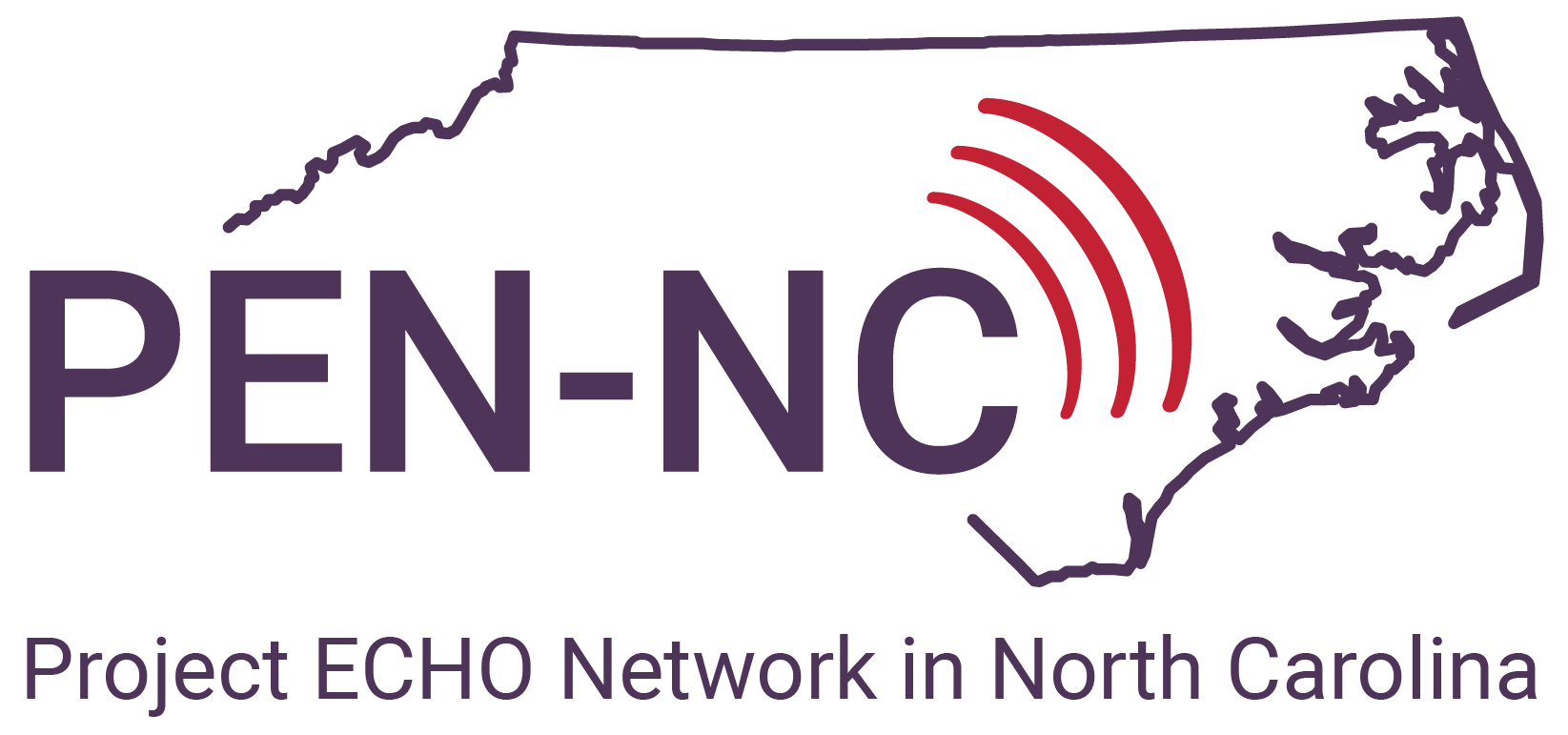Project ECHO™ (Extension for Community Healthcare Outcomes) is a telementoring model aimed at increasing access to health care by allowing health care providers to collaborate and learn together. This four-part model has been implemented worldwide to address some of the most pressing health challenges. So how can you bring it to your community? Below, you will find a step-by-step guide to launching your own ECHO™ program.
1. Learn: “Introduction to ECHO” Sessions
Hosted by Project ECHO’s founder, Dr. Sanjeev Arora, these monthly, 90-minute video conference sessions are the first step in determining if the ECHO™ model is right for you. Sessions include a 45-minute presentation by Dr. Arora, followed by a 45-minute Q&A. View session dates and register here.
Coming soon: We’ll begin publishing a Project ECHO™ resource inventory for more information in the fall of 2024!
2. Clarify your Goals & Vision
Next, answer the following questions:
- What problem or issue are you trying to address?
- What is your overall goal, and why is the ECHO™ Model an effective approach?
- Have you conducted a needs assessment? If not, consider doing so to ensure that your program addresses specific local health care gaps and challenges.
- Do you understand your potential learners’ needs, and what might encourage their participation? What do they have to gain?
- What are your infrastructure and resource needs?
- Do you have the financial resources needed to implement your vision? If not, do you have potential financial partners?
- How will you measure the success of your program?
3. Build your Capacity
Preparation
- Begin building and recruiting your ECHO™ program team, known as a hub. Typical roles include ECHO™ Lead, Clinic Coordinator, Program Manager, IT Support, and Subject Matter Experts. Note: There may be overlap between roles.
- Determine equipment and IT Infrastructure needs of the program team and participants.
Logistical Groundwork
- Get to know Project ECHO’s and PEN-NC’s resources and tools.
- Develop your curriculum.
- Apply to distribute Continuing Education Units (CEU), Continuing Medical Education (CME), and Maintenace of Certification (MOC) credits (if needed). Learn more about the CEU provider application process in North Carolina here.
- Develop your evaluation plan.
Marketing & Recruitment
- Begin recruiting and obtaining commitments from community participants known as spokes. Develop relationships with the intended primary audience and target outreach to potential learners/participants.
- Develop marketing materials. These materials may include:
- Program Curriculum
- Brochures
- Outreach Emails
- Social Media
- Webpage
4. Launching your ECHO™ Program
Before the Launch:
- Confirm program logistics (date, time, location)
- Hold “Mock” ECHO™ Session
- Reinforce all videoconferencing etiquette
Format of an ECHO™ Session (90 Minutes):
- Introductions
- Subject matter expert didactic presentations of evidence-based practices
- 1-2 in-depth, anonymized case presentations led by participants
- Consultation from experts and group discussion
Launch:
- Aim to start and stop ECHO™ sessions on time.
- Facilitator should engage all participants by name to solicit comments or questions.
- Collect feedback from all participants with a post-session survey.
5. Evaluating and Refining Your ECHO™ Program
Evaluation is a critical part of the ECHO™ model, ensuring that best practices are kept up-to-date, and that the ECHO™ model is effective.
- Review feedback collected from participants.
- Follow your program’s established evaluation plan.
- Continuously review and adjust your curriculum to suit your participants’ evolving needs.
For more, dive into this comprehensive guide to ECHO™ evaluation.
The Project ECHO Network in North Carolina (PEN-NC) is dedicated to providing technical assistance, coordination resources, and new ECHO™ Programs development support in North Carolina. We invite you to sign up for program updates on our website, so we can support your ECHO™ program at every stage.
Additional resource: Introduction Guide on How to Become a Project ECHO Hub
